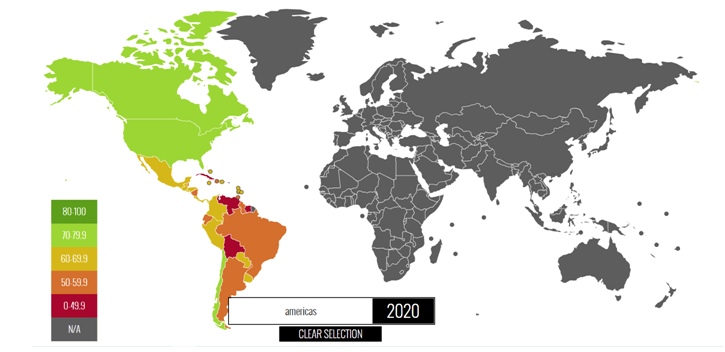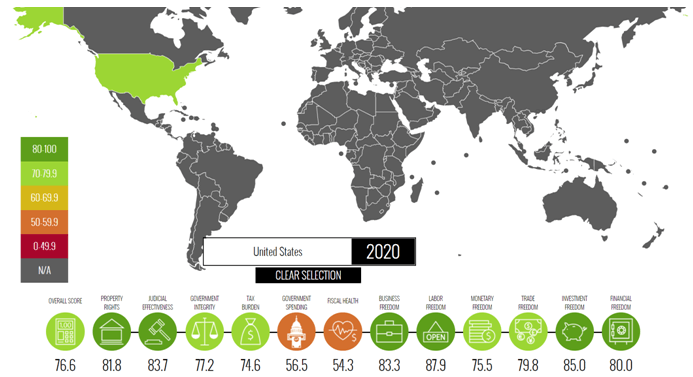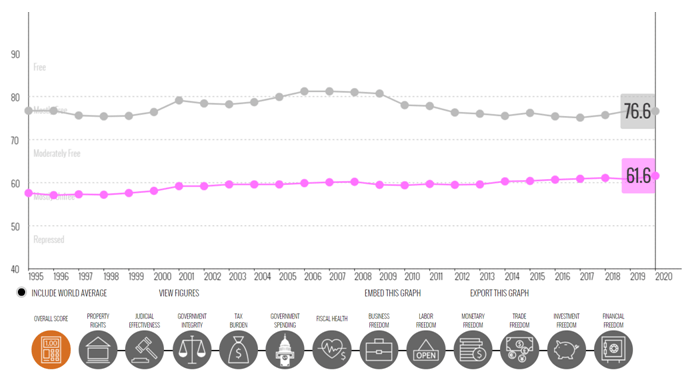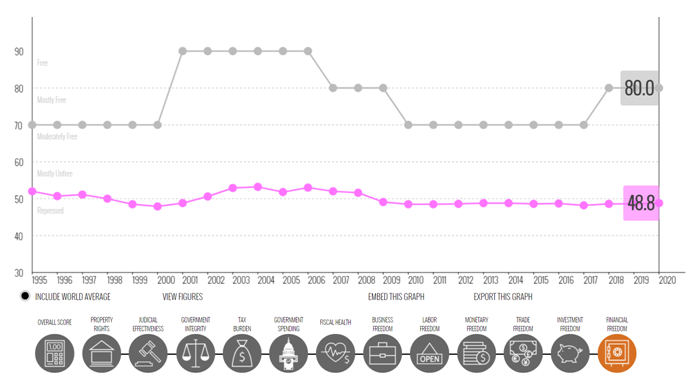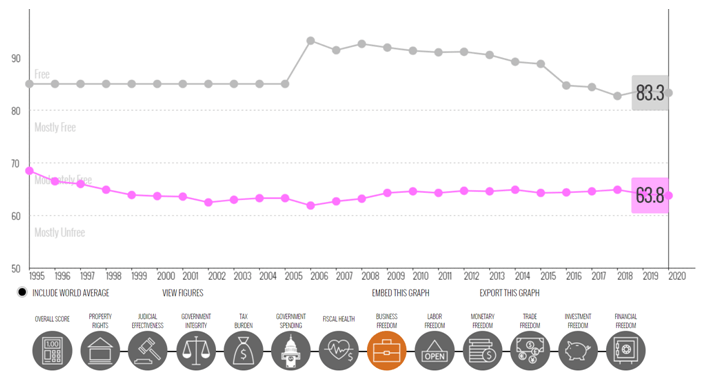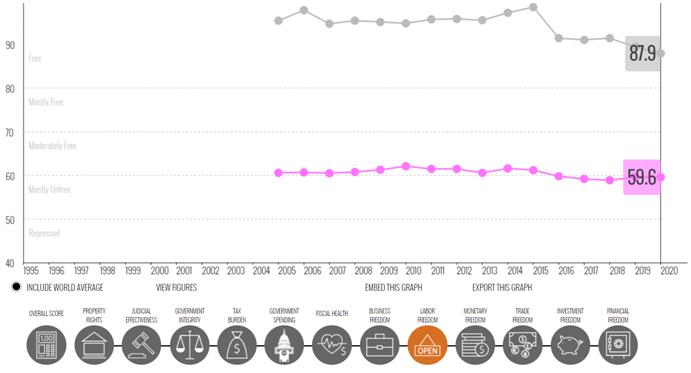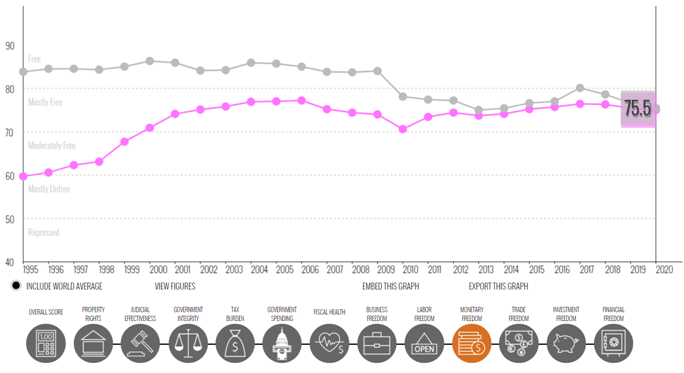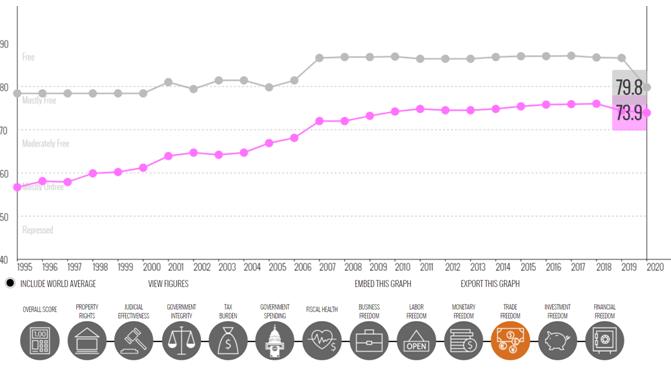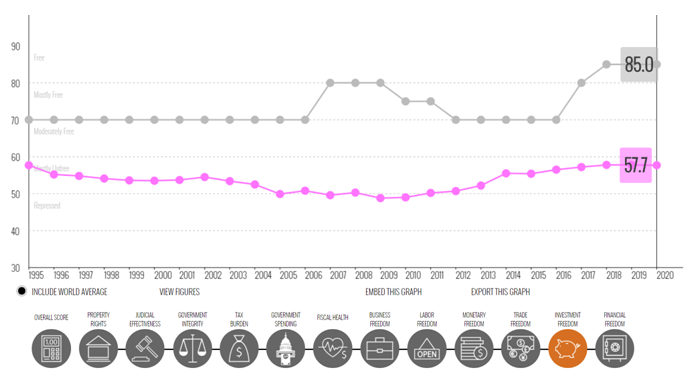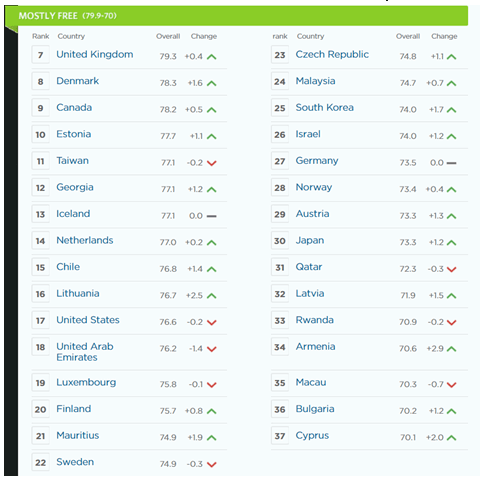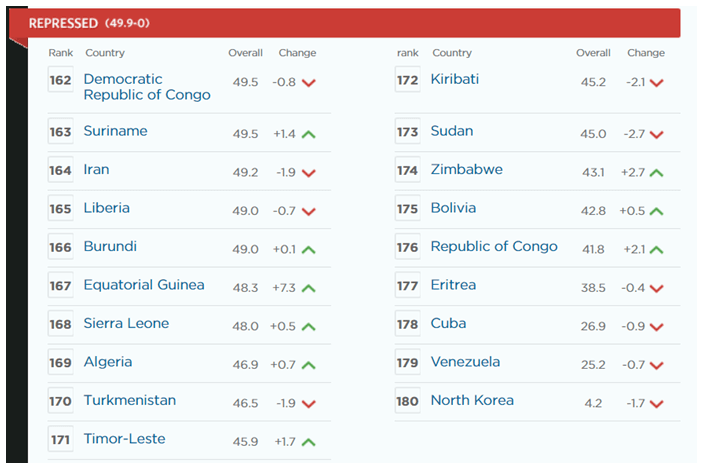
Introduction of Free Market Economy
A free market economy means an ecosystem (i.e., forces of production and labor) of a country controlled purely by the demand and supply forces with minimal or no government intervention and which encourages entrepreneurialism by allowing voluntary activities performed by private players unless it control by governmental authorities such as minimum wages and antitrust laws.
Explanation
- As the name suggests, a free market economy is an economy that is not restricted by governmental laws, and the forces of demand and supply move everything.
- In simple language, let’s imagine an economy wherein the goods are trading in the market at the highest prices at which the consumers are ready to buy them; the services provide as per the satisfaction level of the recipient, and laborers are paid the highest wages the businesses can pay purely on the basis of their performance. Sounds great! This is what we can use for a “free market economy”.
- However, an economy wherein the government imposes a law on companies to pay minimum wages to their laborers irrespective of actual performance degrades the quality of labor. Such laws did not introduce in the free market economy.
- Also, in an economy controlled by the government, the prices of the means of production and the manner of distribution of wealth are organized by the government.
- So this allows the employer to pay for the services per the laborer’s requirements and skills. On the other hand, it allows employees to charge as per their skill, competitiveness, and demand in the economy.
Features of the Free Market Economy
- Freedom allows people within the country to choose goods to consume and services to enjoy.
- Governmental intervention is almost NIL or negligible.
- Such an economy increases competition in the market.
- With the increased competition, perks such as lowering prices, increasing output quality with the best possible efficiency, distributing wealth to deserving people, etc., are achieved.
- The labor receives the highest wages for their quality services, and the consumers pay the highest prices for the quality of goods or services.
- The ownership of almost everything moves from government to private players.
- Reduction in monopolies market of government entities and private players are allowed to compete.
How Does It Work?
- The basis of the free market economy is the thought process of an individual in the country who is trying to satisfy his needs on the basis of his competitiveness, quality of work, and knowledge. He does not want the government to force the prices favorably or unfavorably.
- A free-market economy is also known as a “Laissez-Faire Economy,” which means letting people do what they wish. It allows the employer to quote bidding (i.e., higher prices) for the best quality of labor. On the other hand, the labor grabs the opportunity as per their competitive spirit.
- Now the simple question arises “What role does the government have in a free economy?” or “whether the free market economy does not need a government?” Well, a country without a government is like a journey without milestones. The government in a free market economy provides the rules for the path.
Example of a Free Market Economy
Few believe that a free market economy is a myth and does not exist. Rather, they believe that the market requires to follow some policies made by the government. The United States of America is said to be one of such free-market economies.
Now the obvious question arises in a layman’s: Who decides the ranking of economies per the freedom enjoyed? “The Index of Economic Freedom,” created by “The Heritage Foundation” way back in 1995 ranks the degree of economic freedom of various countries around the globe. We have chosen the united states of America to present the freedom:
- The American continent:
Source: https://www.heritage.org/index/heatmap
- The United States’ overall score of freedom:
Source: https://www.heritage.org/index/heatmap
- The economy of the American continent treats as moderately free in the last few decades, as depicted by the following chart. However, the USA is said to be a free-market economy. The grey refers to the USA, and the pink refers to the world economy.
Source: https://www.heritage.org/index/visualize
- The financial freedom of the USA depicts below:
Source: https://www.heritage.org/index/visualize
- The business freedom of the USA depicts below:
Source: https://www.heritage.org/index/visualize
- The labor freedom of the USA depicts below:
Source: https://www.heritage.org/index/visualize
- The monetary freedom of the USA depicts below:
Source: https://www.heritage.org/index/visualize
- The trade freedom of the USA depicts below:
- The investment freedom of the USA depicts below:
Source: https://www.heritage.org/index/visualize
- Now the countries that rank the highest in economic freedom as of 2020 are:
Source: https://www.heritage.org/index/ranking
Source: https://www.heritage.org/index/ranking
Source: https://www.heritage.org/index/ranking
Impact of Free Market Economy
- Such an economy leads to growth in all segments, such as judicial effectiveness, tax burden, freedom of business, monetary freedom, financial freedom, the integrity of government, government spending, fiscal health, labor freedom, etc.
- The output of such an economy is the prosperity and well-being of people in the economy.
- However, governmental intervention is necessary for a few players who drive the forces according to their wishes rather than market forces.
- Government acts likes parents, and the free market economy acts like children. Parents give freedom to their children to fulfill their dreams until the intentions are not harming others in society.
Importance of a Free Market Economy
- As a consumer of goods, we need quality goods irrespective of the prices. As a consumer of services, we aspect for better quality of output. And As a worker, we expect to get paid rightfully as per the quality of services provided to the employer. So, efficiency drives the economy in the case of the free market economy.
- Overall free-market economy leads to the gross domestic product of the country.
- It lets the employer pay incentives for better output and reduces the pay for non-performance.
- The prices of goods and services depict the availability of supply in the market. Business entities controlling their costs can perform well in a free market economy.
- The prices are less driven by the policies made by the government.
Advantages
Below are some of the advantages :
- It increases competition amongst the best players in the economy.
- Consumers get better quality of goods and services.
- The prices of commodities are not hiked by an unrequired tax that the government normally imposes.
- Consumers are sane enough to choose what they need.
- Price innovation & product innovation gets a boost.
- Businesses grow with the manifold of profits.
- Essential resources get allocated on the basis of efficiency.
- Investment by the business sectors increases in the long term.
- Reduction in the monopoly market & economy strives towards perfect or monopolistic competition.
Disadvantages
Below are some of the disadvantages :
- It may lead to an increase in the gap in the wealth of the citizens & may not serve the purpose of equal distribution of wealth.
- It may also lead to an increase in inflation in the long term.
- Unskilled laborers may remain unpaid or lower paid, striving for survival.
- Non-public goods may trade.
- Monopoly markets may increase for businesses with the best quality of products, and it may shut down the business of other companies that are pocket-friendly for a certain set of individuals.
- The growth may become unsustainable in the long term.
- Increase in instability in the financial markets.
Conclusion
A free-market economy allows the consumers and producers/suppliers of goods and services to lead the way for prices without any restrictions by the government. The government’s job is limited to proving the pathway or rules of the road to lead the economy. Government majorly plays the role of a policymaker. The world has been experiencing variants of the free market economy.
Recommended Articles
This is a guide to Free Market Economy. Here we also discuss the introduction, how the free-market economy works, and its advantages and disadvantages. You may also have a look at the following articles to learn more –
